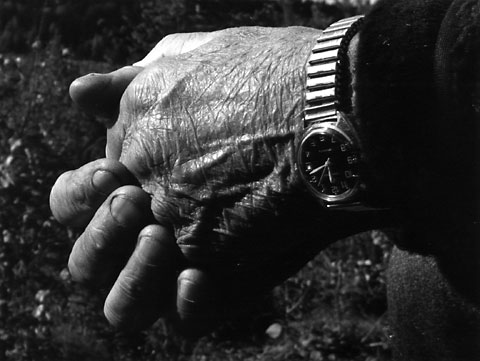Sentence help: "También, ella tomó noticia de las manos;"
También, ella tomó noticia de las manos; las manos no parecía ser joven, sino eran arrugadas como si en este mismo instante hubiera empapado en una bañera durante horas.
I wanted to say, Also, she took notice of his hands; his hands did no appear to be joven, rather they were wrinkled as if he just had soaked in a bath for hours.
7 Answers
Hi!
Y se fijó en sus manos, que no parecían jóvenes, sino que estaban arrugadas como si las hubiese dejado a remojo en una bañera durante varias horas.
"También se fijó en sus manos; no aparentaban ser jóvenes, sino más bien estaban arrugadas, como si las hubiese tenido a remojo en el baño durante horas."
"Tomar noticia" doesn't mean anything in Spanish. "Tomar nota" does mean something, but not "to take notice". "Tomar nota" means "to acknowledge a fact", or in some cases "to keep a score on something".
"les hizo caso de las manos" = "she took notice of his hands"
"tomó noticia" doesn't make sense to me
darse cuenta means to realize.
Try observar, fijarse en, prestar atencíon a, or percatarse
I'm way tired so this is probably wrong but I'll take a shot: También, tomó noticia de las manos; no parecían ser jovenes, sino arrugadas como si en este mismo instante hubiera empapado en una bañera durante muchas horas.
This is how I would translate this: También, ella se dio cuenta de sus manos, las cuales no tenían apariencia joven, mas bien se encontraban arrugadas como si él las hubiese dejado en remojo en una bañera durante varias horas.
It looks pretty good to me ![]() but I'm not a native speaker.
but I'm not a native speaker.
Just the 'she noticed' bit, I'm not sure that you can say it like that (but I couldn't categorically say you can't either) - for one thing noticia is spanish for news so that might be confusing if you're talking about seeing something? Maybe observar or notar would be better? Better see what some others suggest.
Also the context will probably show that it's 'his hands' that she is looking at but if not you could add las manos 'de él'.












